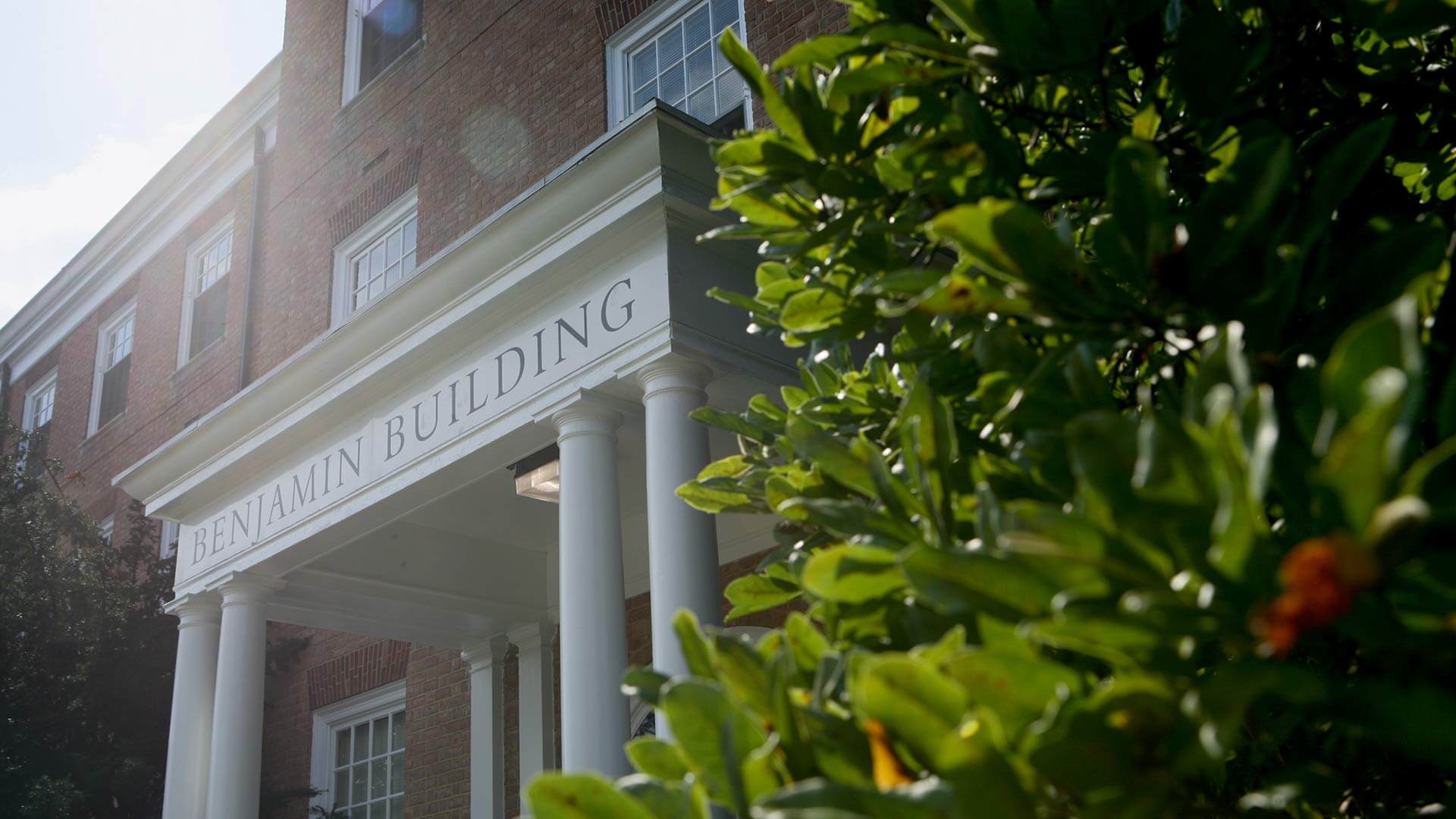- February 11, 2020
- By Dan Novak M.Jour. ’20
Emmie Godwin ’21 had an uncle with multiple sclerosis, but only as she grew up did she start to grasp how difficult it was for him and others with similar conditions to navigate a society built for the able-bodied.
Godwin’s eyes were opened fully when she enrolled in a course last semester called, “Disability: From Stigma and Side Show to Mainstream and Main Street,” covering the historic challenges of accessibility and prejudice that people with disabilities have faced.
She is now one of 24 students enrolled in Maryland’s new disability studies minor, which began this semester. The course she took, taught by Professor Peter Leone in the College of Education, explores the cultural, educational and medical roots of what it means to be disabled in the 21st century and serves as the program’s foundation.
 With the new minor, Maryland joins other flagship universities around the country with established disabilities studies programs. The launch of the minor at Maryland had been years in the making. Two symposiums on disabilities in 2014 and 2015 led by Leone and special education lecturer Carolyn Fink drew a high degree of student involvement and interest.
With the new minor, Maryland joins other flagship universities around the country with established disabilities studies programs. The launch of the minor at Maryland had been years in the making. Two symposiums on disabilities in 2014 and 2015 led by Leone and special education lecturer Carolyn Fink drew a high degree of student involvement and interest.
“It reinforced for us that developing a minor made a whole lot of sense,” he said.
Ana Palla-Kane, co-chair of the President’s Commission on Disability Issues, which advises campus leadership on areas of concern surrounding disability and accessibility and helped lobby for the creation of the disability studies program, said the program is a big step for awareness of disabilities on campus.
“Students are starting to recognize that disabilities are part of their life—that they have family members or people they know on campus with disabilities,” said Palla-Kane, a specialist in the Division of Information Technology and lecturer in the School of Public Health who has led heavily wait-listed course on physical activity for people with disabilities. “A lot of students want to go into careers where knowledge and experience with accessibility and disability is fundamental.”
While the disability minor is housed within the College of Education, most of the minor’s electives fall outside it—courses in business, engineering and English, for example, expose students to disability and accessibility issues through their major or related discipline.
“Disability is something that cuts across demographics and areas of study,” Leone said.
Now instead of going through the world naïve to the issues of disability, Godwin sees needs everywhere. Bus stops and restrooms don’t always cater to people with disabilities and sometimes are not fully compliant with the Americans with Disabilities Act. Messaging in elevators or trains for blind and deaf individuals is often deficient.
Godwin hopes the minor will help narrow her focus as she pursues a career in the broad field of communications.
“I’ve noticed how much can be improved.”
Topics
Campus & CommunityUnits
College of Education